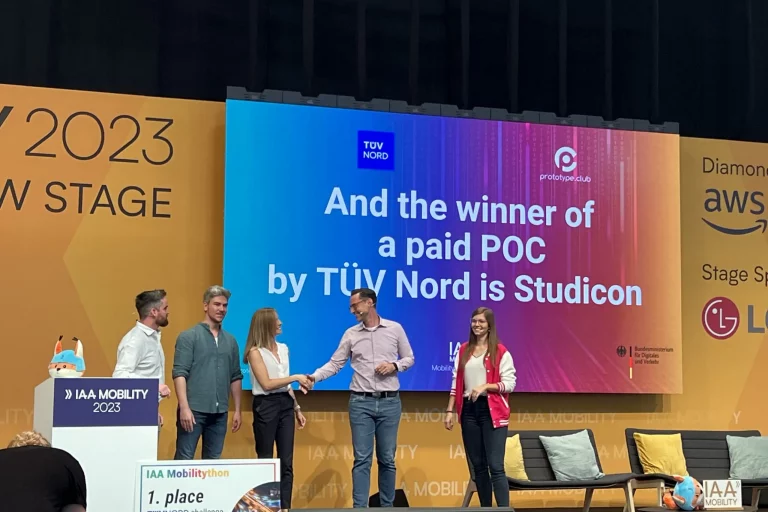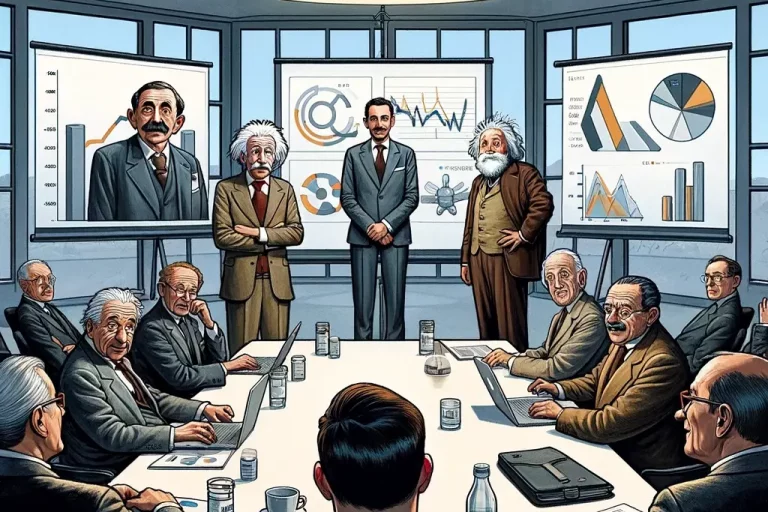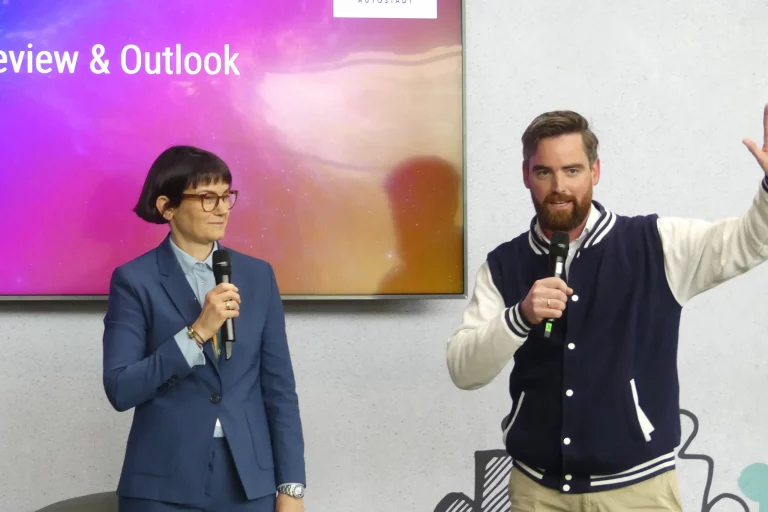Reading time: 5 min
- Why is a hackathon a developer sprint but not the other way around?
- Does an elevator pitch necessarily have to be delivered in an elevator?
We have the answers to these burning questions!
If you’ve ever felt lost in a jungle of startup jargon and buzzwords, you’ve come to the right place. We’ve put together a little startup lexicon to give you a clearer look at terms like hackathons, elevator pitches, and more.
Challenge
/ˈtʃælɪndʒ/
-
In a developer sprint, a challenge refers to a specific obstacle or problem that the development team needs to overcome or complete within the designated sprint timeframe.
-
Overcoming challenges requires problem-solving and collaboration to find effective solutions and ensure the successful completion of the sprint’s objectives.
Kick-off
/ˈkɪk ɔːf/
-
A kick-off marks the start of a developer sprint with the challenge partner and participating teams coming together.
-
The kick-off meeting typically includes a detailed description of the challenge that needs to be solved and questions are answered. In some cases, data is provided.
Rapid Prototyping
/ˈræp.ɪd ˈprəʊtətaɪpɪŋ/
-
Rapid prototyping refers to the process of quickly (mostly within two weeks) creating functional or visual prototypes of a product or feature.
-
The goal is to develop a simplified version of the product or feature that showcases its core functionality and user experience.
Demo day
/ˈdem.oʊ deɪ/
-
On the demo day, the participating teams present their work and demonstrate the functionality and features of the product or project.
-
The purpose is to gather feedback and validate the work completed. In interactive sessions, the challenge partner can ask questions and provide feedback.
Pitch Deck
/pɪtʃ dek/
-
A pitch deck is a presentation or slide deck communicating the key aspects of a product, project, or idea to stakeholders, investors, or potential clients.
-
It includes the problem being addressed, the proposed solution, market analysis, target audience, competitive advantage, business model, and potential financial projections.
-
A pitch deck is supposed to convey the value proposition, market opportunity, and potential impact of the product or project, aiming to generate interest and support.
Reverse Pitching
/rəˈvəːs pɪtʃ/
-
In reverse pitching, the challenge partners present their specific business challenges, market needs, or problems they are seeking solutions for.
-
Startups, or solution providers pitch their innovative ideas, products, or services as potential solutions.
-
The goal is to foster collaboration and innovation by aligning the solutions offered by startups with the needs and challenges identified by the challenge partner.
Elevator Pitch
/ˈel.ə.veɪ.t̬ɚ ˌpɪtʃ/
-
An elevator pitch is a concise and compelling summary of a product, service, or idea that can be delivered in the time of an elevator ride (around 30 seconds to two minutes).
-
Its goal is to grab the listener’s attention and communicate the core value proposition or unique selling points of the product/service.
-
An effective elevator pitch should answer the questions:
-
“What problem does it solve?”
-
“How does it solve the problem?”
-
“Why is it unique or valuable?”
-
Scoping workshop
/skoʊp ˈwɝːk.ʃɑːp/
-
A scoping workshop is a collaborative session to establish the scope and objectives of a particular development project or feature. Its primary goal is to align all people involved on the project’s purpose, deliverables, and overall direction.
-
The output helps to set expectations, guide the development team’s efforts, and facilitate effective decision-making throughout the sprint.
MVP
/ˌem viː ˈpi/
-
An MVP (“minimum viable product”) is the most basic version of a product that contains only core features and functionalities.
-
The focus of an MVP is to test the product’s viability in the market and gather feedback to reduce development time and resources.
-
An MVP allows for faster time-to-market, reduces the risk of building a product without product-market-fit, and provides a basis for further product development and enhancements.
You might also be interested in
Success story: BANULA project and decarbon1ze
BANULA and decarbon1ze revolutionize EV charging. Discover the role prototype.club plays in this collaboration.
Successful collaboration between TÜV NORD and prototype.club
The TÜV NORD Challenge at the IAA 2023 demonstrated how strong partnerships can support the development of mobility.
Was Robert Bosch a master in the art of pitching?
Is the art of pitching crucial in today’s business world? We don’t think so because Robert Bosch probably wasn’t an expert in this field as well.
How OPEN INNOVATION is transforming the future of businesses
The Autostadt went on an exciting journey with prototype.club and made it a success story – learn more about open innovation in business.
prototype.club & KOINNO: Empowering innovative procurement for startups
Learn how prototype.club and KOINNO are working together to promote innovative procurement and help startups connect with public sector buyers.







